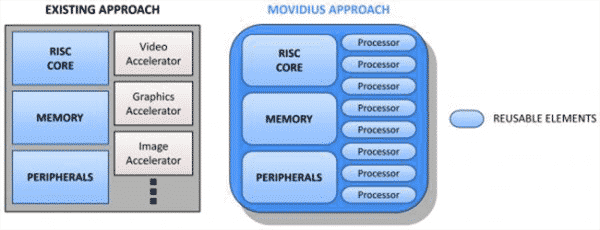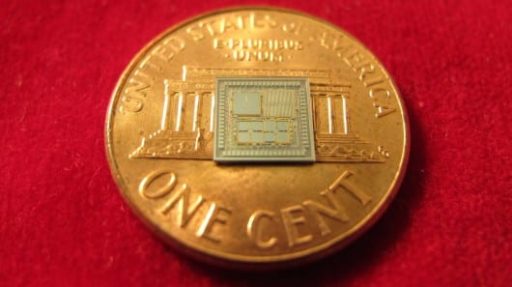Most of the smartphones today come with severe battery constraints, so much so that intensive use can drain them in less than a day. However, Movidius aims to resolve this with the help of tiny co-processors which, it claims, can furnish several teraflops of computing power.
The claim that a tiny co-processor can provide teraflops of computing muscle is rather tall. But Movidius has been working on the technology for many years and the company has already created a first-generation chip as a proof of concept.
Currently, Movidius is touting its chip technology as a secondary solution which will sit in behind the main processor to power up specific accessories. Specifically when it comes to cameras, regular smartphones are not able to handle their extensive use and the batteries drain very quickly.
Movidius is gearing up to meet the challenge by providing a camera-specific co-processor which would provide enough power to allow the users to keep the camera on at all times. Moreover, over time, the Movidious chip could even be made a part of the SoC, channeling its computing prowess directly into the processing of the smartphone or the tablet.
The company hasn’t shared the details of its architecture for now. But it has already secured sufficient funds to continue development of the second-generation computer vision chip while the first-generation chip may be complete by the end of this year. It remains to be seen that whether or not Movidius delivers on its tall promises because if it does, that could very well mean a revolution in the mobile arena.
Courtesy: Extreme Tech
[ttjad keyword=”ipod-touch”]




